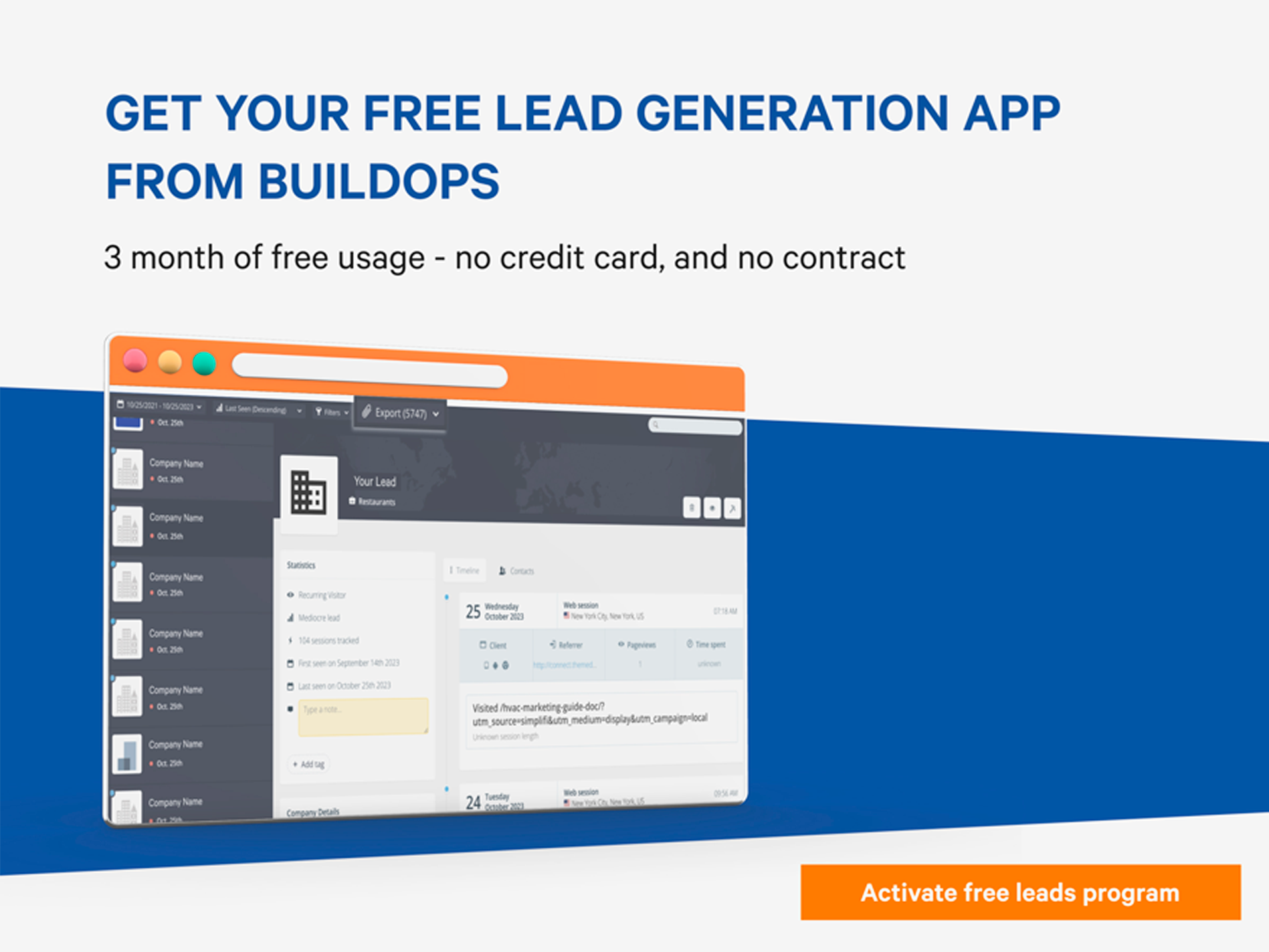Customer Relationship Management (CRM) for Business Development is a strategic approach that combines business processes, technology, and human acumen. This approach enables organizations to understand their customer base and the market, facilitating better customer engagement and optimizing marketing strategies. By leveraging data analytics, CRM tools provide valuable insights into consumer behaviors, preferences, and trends.
Central to business growth, CRM systems are designed to streamline interactions with current and potential customers. These systems encompass sales management, productivity enhancement, and comprehensive communication efforts. The goal is to improve business relationships and foster customer loyalty, which in turn boosts sales and long-term profitability. Businesses use CRM data to tailor solutions, services, and promotions to specific market segments.
Implementing CRM for Business Development allows companies to maintain a competitive edge in a dynamic marketplace. It helps anticipate customer needs, tailor offerings, and elevate the overall customer experience. With improved customer satisfaction, businesses can increase customer retention rates and attract new customers through positive word-of-mouth and peer recommendations.
In today’s fast-paced business environment, developing and maintaining robust customer relationships is paramount. CRM for Business Development has emerged as an indispensable tool, bridging the gap between businesses and their most valuable asset: customers. Exploring the capacity of CRM systems, companies are rewriting the playbook on customer engagement and strategic marketing.
From startups to large enterprises, utilizing CRM is the cornerstone of a successful business strategy. Businesses are increasingly recognizing the potential of CRM to transform their development efforts. As such, it plays a critical role in their pursuit to streamline operations and secure a substantial market share. This shift reflects a broader recognition of how customer-centric strategies can fuel growth and innovation.
This article delves into the intricacies of CRM for Business Development, highlighting its benefits and implementation challenges. As we unpack the power of CRM, we emphasize its significance as not just a technological tool but as a cultural shift towards customer-focused operations. Join us as we explore how CRM is reshaping the future of business development and driving companies towards long-term success.
The CRM Revolution: Redefining Business Development in the Digital Age
In the digital era, the Customer Relationship Management (CRM) revolution has become the cornerstone of business development. CRM systems have evolved from mere contact management tools to integral platforms that drive sales, marketing, and customer service. They streamline operations and personalise the customer experience, leveraging a wealth of data to inform strategic decisions. Insightful analytics derived from CRM can reveal market trends, enabling businesses to adapt quickly.
Innovative CRM tools now offer predictive analytics, enhancing the ability to forecast sales and customer behaviors. By aligning marketing campaigns with real-time data, businesses can target the right audience with the right message. The automation features within CRM software reduce manual tasks, thus increasing efficiency and allowing teams to focus on higher-value interactions. Reduced redundancy and enhanced coordination across departments are clear benefits of a well-integrated CRM system.
The digital age invites global competition and customer expectations for rapid, personalised service. Here, the role of CRM in maintaining a competitive edge cannot be overstated. It provides a unified view of each customer, allowing businesses to tailor their approaches. Responsiveness to client needs is vastly improved, fostering loyalty and satisfaction. Digital CRM platforms facilitate seamless communication channels, so businesses remain agile and responsive to market demands.
CRM technology underscores the importance of customer-centric strategies in growing a business. Building robust relationships with clients leads to increased retention rates and ultimately, better revenue growth. CRM systems help businesses understand the nuances of customer interactions, which is paramount in developing these relationships. Through the data collected, businesses can anticipate needs, ensuring they meet, if not exceed, customer expectations.
In conclusion, the CRM revolution has redefined how businesses approach growth in the digital age. It exemplifies the transition from a transactional to a relational mindset, recognizing that enduring business development is fueled by lasting customer connections. As CRM systems continue to advance, they remain instrumental in transforming business practices and achieving sustained success in an ever-evolving marketplace.
Leveraging CRM Insights for Unstoppable Business Growth
Harnessing the power of CRM insights paves the way for unstoppable business growth, offering a clear competitive advantage in the marketplace. With data at its core, CRM systems track customer interactions across all touchpoints, providing a granular understanding of their journey. These insights are pivotal for shaping a business’s strategic direction, revealing opportunities to innovate and optimize the customer experience.
Effective use of CRM data also means businesses can anticipate customer needs with remarkable precision. By analysing past interactions and purchases, a predictive framework is established, guiding dynamic sales approaches and bespoke marketing strategies. In this way, companies can fine-tune efforts to meet market demands, ensuring they stay relevant and ahead of the curve. Precision in targeting leads to higher conversion rates and stronger, more meaningful customer engagements.
Furthermore, CRM insights drive efficiency within an organization. They identify trends and patterns that inform resource allocation and workforce training, aiming to maximize productivity. Teams equipped with CRM data can resolve customer issues faster, enhancing satisfaction and bolstering a company’s reputation for excellence. Investing in employee development in line with CRM findings can translate into substantial returns and foster a proactive, customer-first culture.
CRM analytics also afford businesses the agility to adjust to market fluctuations. Real-time data informs about changing customer sentiment, enabling quick tactical shifts. In a landscape where speed and adaptability are key, the ability to pivot based on current data can be a game-changer. Businesses stay in sync with the market pulse and can pre-emptively address potentially disruptive trends.
In summary, leveraging the full potential of CRM insights is integral to achieving unstoppable business growth. By providing a profound understanding of customer dynamics and behavioural patterns, CRM tools empower companies to make informed, strategic decisions. As such, businesses that embrace CRM insights are well-positioned to thrive, carving out a dominant market position through continual growth and innovation.
Beyond Sales: How CRM Tools Foster Long-Lasting Customer Relationships
Beyond driving sales, CRM tools play a pivotal role in nurturing long-lasting customer relationships. Their ability to collect and manage customer interactions forms a cohesive narrative, illuminating the customer lifecycle.
CRM’s impact on relationship-building extends to improved communication. Customers appreciate when businesses recognize their needs and offer relevant solutions. CRM enables this by ensuring that all touchpoints are informed by the customer’s unique profile. This results in conversations that are context-rich and more likely to resonate with the customer. Through targeted communications, businesses can demonstrate their commitment to the customer, thereby strengthening the relationship.
Loyalty programs are another facet where CRM tools prove beneficial. By tracking customer purchases and interactions, CRM can identify the most loyal customers. These customers can then be rewarded with exclusive offers and perks, which not only rewards their loyalty but also encourages further engagement. A thoughtful loyalty program, viewed through the CRM lens, can turn satisfied customers into passionate advocates for the brand.
Another significant aspect is the facilitation of customer feedback. CRM platforms often include functionalities to capture and manage customer inquiries and complaints. By promptly addressing concerns and implementing feedback, businesses showcase their dedication to service excellence and continuous improvement. Customers feel valued when their voices are heard and actioned upon, strengthening the emotional investment they have in the business.
In essence, CRM tools go beyond mere transactional interactions to cultivate authentic, long-term customer relationships. They provide a framework that enriches customer understanding and enhances every phase of the customer journey. Companies that leverage CRM to build and maintain strong customer bonds are apt to experience higher levels of retention and a more resilient brand loyalty. CRM, therefore, is a cornerstone in any strategy aimed at fostering lasting customer relations and driving sustainable growth.
CRM: The Secret Sauce in Effective Business Development Strategies
They align various facets of an operation – sales, marketing, customer service – into a concerted, customer-focused effort.CRM’s capabilities in segmentation are especially transformative, allowing businesses to categorize customers based on behavior, preferences, and value. Tailored messaging and outreach strategies become significantly more effective when grounded in such segmentation. As businesses go about developing new opportunities, CRM data empowers them with the insight to approach the right customers, at the right time, with the right offerings, fine-tuning their strategies. Cross-departmental collaboration is another boon provided by CRM systems.
By monitoring customer preferences and industry trends, CRM helps businesses stay informed about their position relative to competitors. This intelligence is crucial in adapting business development strategies to focus on unique selling points and areas for improvement. A strong CRM system provides a clear vision of the competitive landscape, informing strategic decisions that can leapfrog rival offerings.
Summarizing, CRM is the transformative element that can elevate business development strategies to new heights. By delivering actionable insights, fostering collaboration, and enabling nuanced engagement, CRM systems help businesses build comprehensive approaches that resonate with customers and drive growth. In the arsenal of business development tools, CRM stands out as a secret weapon for those aiming to outmaneuver competition and sustain a trajectory of success.
From Prospects to Advocates: The Role of CRM in Transforming Client Journeys
CRM plays a critical role in transforming the client journey from initial prospects to vocal advocates. At its core, CRM is about nurturing a prospect through the sales funnel, and beyond, to a point where their loyalty turns into advocacy.
From the moment a prospect enters the radar, CRM tools are instrumental in capturing relevant data.This profiling allows for strategic follow-ups and individualized attention. It’s the groundwork for building a relationship based on understanding the prospect’s needs and interests.
As the prospect becomes a customer, the CRM framework provides continuity in the relationship. By staying attuned to the customer’s evolving needs, businesses can evolve concurrently, demonstrating responsiveness and commitment to satisfaction. Such attentiveness is a key driver in converting customers into champions of the brand.
The journey to advocacy includes exceptional service experiences enabled by CRM. When issues arise, the CRM system can expedite resolution by ensuring all customer information is readily available. Quick, competent resolutions reinforce trust and decrease frustration. A positive service experience can often be so impactful that it propels a customer to share their story with others, generating organic and powerful word-of-mouth marketing.
In conclusion, the role of CRM in the client journey, from the initial stages as prospects to becoming staunch advocates, is multifaceted and profound. CRM not only streamlines the process of managing customer information but also enriches the interactions and experiences along the way. Through meticulous record-keeping and analytical prowess, CRM facilitates a journey that marries customer satisfaction with strategic business growth. In the modern business landscape, CRM is indispensable for cultivating lasting, valuable relationships that lead to advocacy and, ultimately, a robust bottom line.





